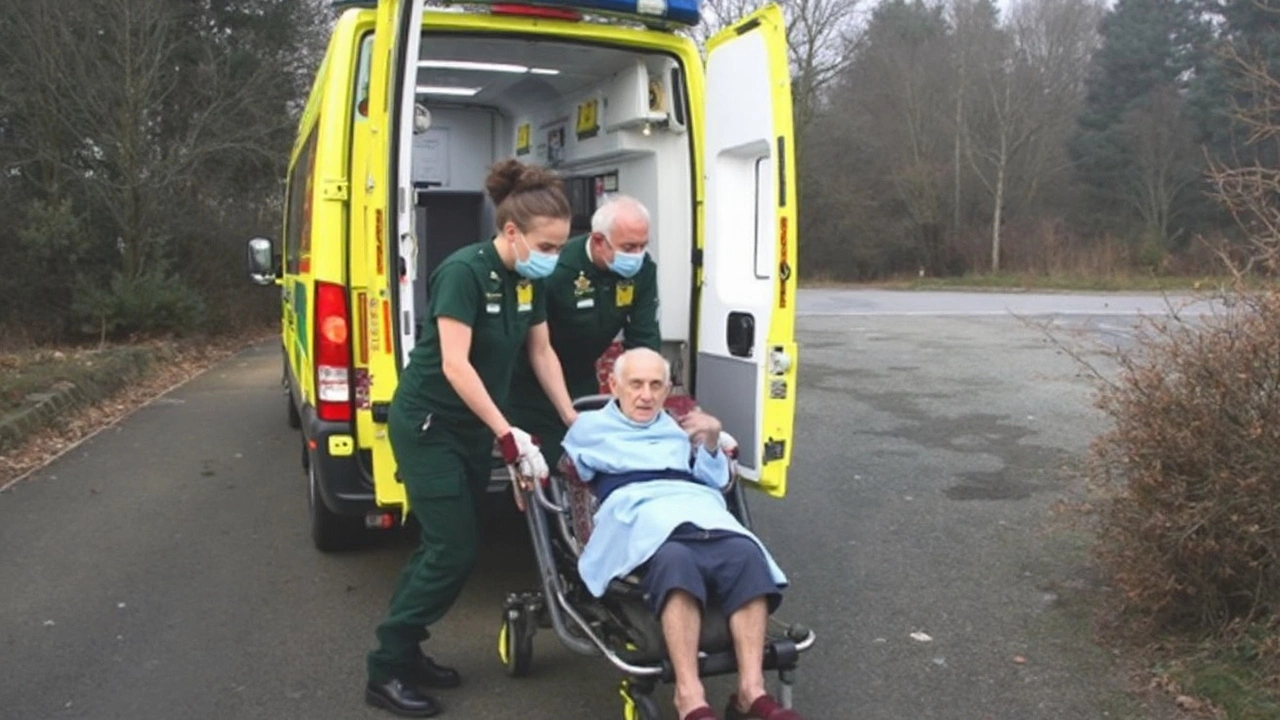NHS Ambulance Crisis: What’s Going On and Why It Matters
Ever waited for an ambulance and wondered why it took forever? You’re not imagining it – the NHS ambulance service is under real pressure across the UK, and the delays are hitting everyday folks.
First off, the numbers are clear: response times have risen sharply over the past few years. A surge in emergency calls, staff shortages, and outdated equipment all play a part. When an ambulance is stuck on the way to a hospital, patients with serious conditions can face worse outcomes, and families feel the stress of uncertainty.
Why Are Calls Stacking Up?
One big driver is the increase in calls for non‑urgent issues. Many people dial 999 for minor aches, colds, or mental‑health concerns that could be handled by a GP or a community service. This clogs the dispatch system and pushes critical cases further down the line.
Another factor is staffing. Hospitals are struggling to keep enough paramedics, and the turnover rate is high. Fewer hands on deck means each crew has to cover more ground, and the gaps become noticeable during peak times.
What Can You Do While the System Sorts It Out?
While the NHS works on long‑term fixes, there are a few practical steps you can take:
- Know when to call 999 versus using NHS 111 for advice. 999 is for life‑threatening emergencies; 111 can guide you to the right service for less urgent needs.
- Keep a basic first‑aid kit at home. Simple items like bandages, an AED (if available), and clear instructions can buy precious minutes.
- Stay informed about local health‑care options in Sutton. Community clinics, urgent‑care centres, and mental‑health hotlines can relieve pressure on ambulances.
- If you’re caring for someone with a chronic condition, have a backup plan. Know the nearest hospital, have a list of medications handy, and consider a medical alert device.
Local groups are also stepping in. In Sutton, volunteers are organizing transport networks for non‑emergency needs, helping to keep ambulances free for true emergencies.
The good news is that the NHS has announced several initiatives: more funding for ambulance fleets, new recruiting drives for paramedics, and technology upgrades to improve dispatch accuracy. These changes won’t happen overnight, but they signal that the crisis is being taken seriously.
Meanwhile, staying calm and prepared can make a big difference. Knowing the right number to call, having basic supplies, and using community resources can help you navigate the delays without panic.
So next time you hear sirens wailing, remember the system is stretched thin, but you have tools at your fingertips to protect yourself and your loved ones. Keep an eye on local updates, support community efforts, and don’t hesitate to use the right channel for help.
NHS ambulance crisis leaves 86‑year‑old in pain after TV warning
- Kieran Lockhart
- on Sep 25 2025
- 0 Comments
A Sky News ride‑along with West Midlands paramedics uncovered how the current NHS ambulance crisis forces vulnerable people to stay home. An 86‑year‑old man spent days nursing a bruised arm because TV ads told him to call 999 only for life‑or‑death emergencies. The crew’s 12‑hour shift highlighted delayed calls, record‑slow response times and a looming winter surge. Front‑line staff warn the pattern is unsustainable. Their experience shows the fine line between curbing non‑urgent calls and endangering those who truly need help.
